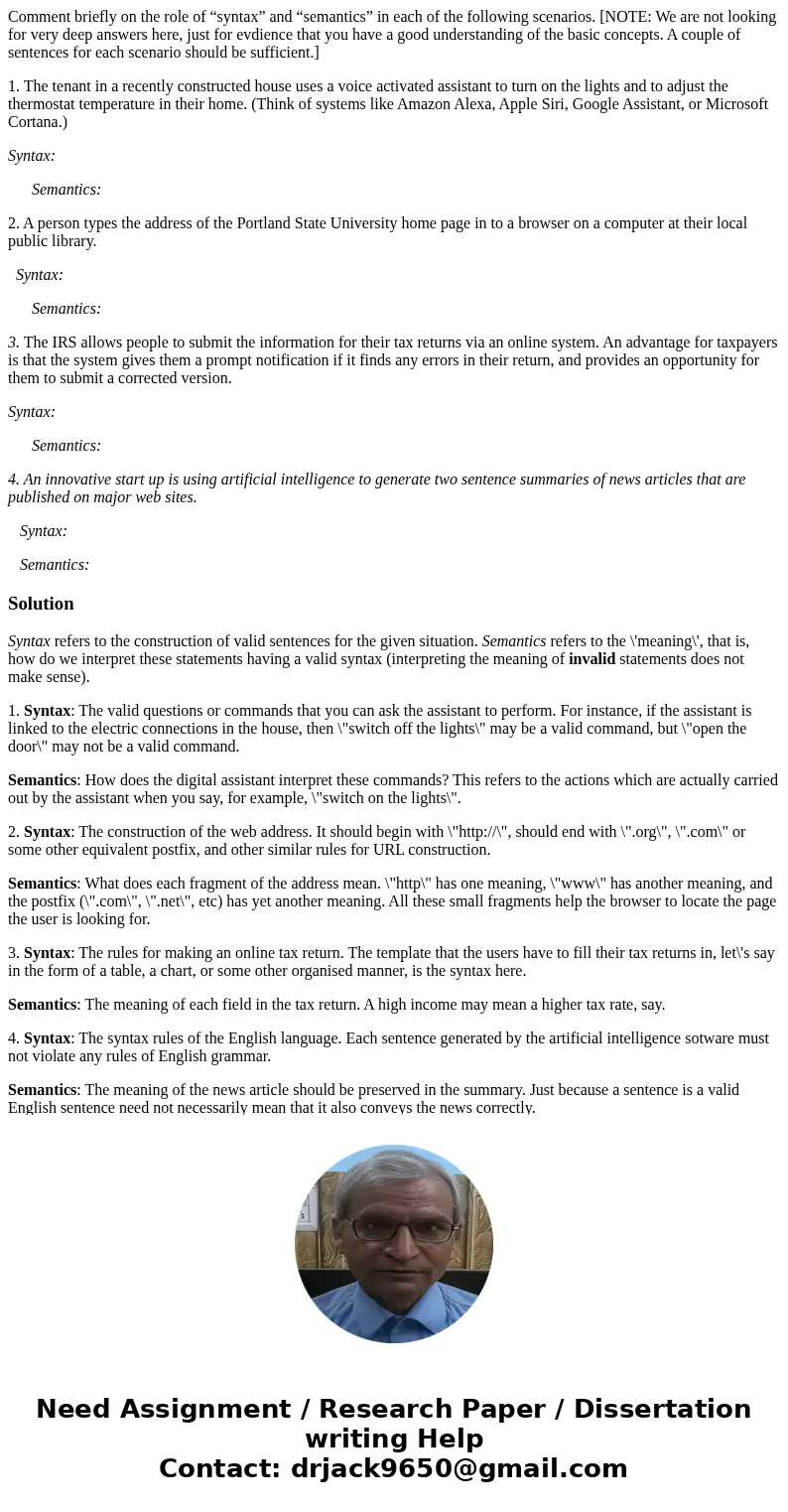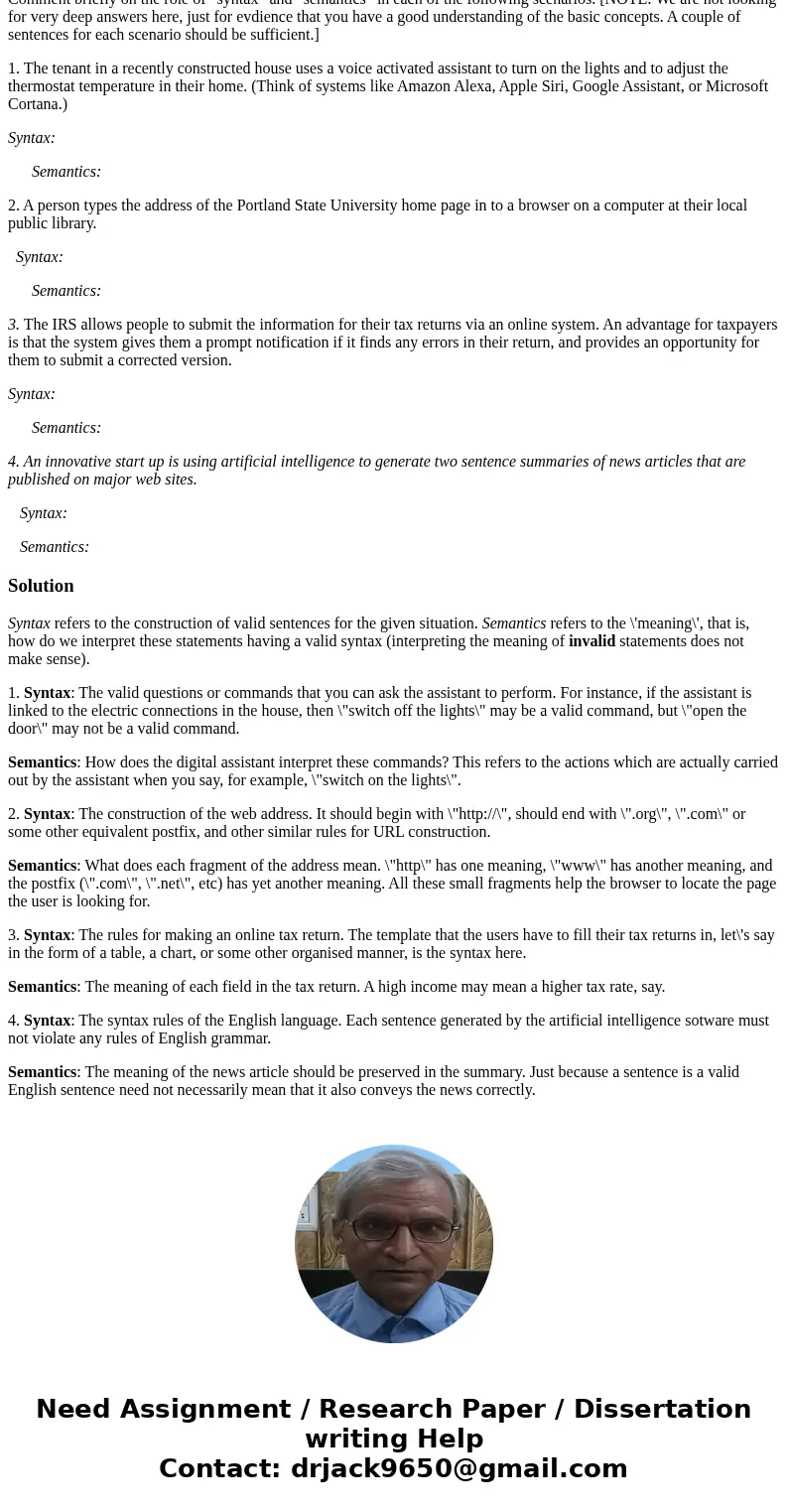Comment briefly on the role of syntax and semantics in each
Comment briefly on the role of “syntax” and “semantics” in each of the following scenarios. [NOTE: We are not looking for very deep answers here, just for evdience that you have a good understanding of the basic concepts. A couple of sentences for each scenario should be sufficient.]
1. The tenant in a recently constructed house uses a voice activated assistant to turn on the lights and to adjust the thermostat temperature in their home. (Think of systems like Amazon Alexa, Apple Siri, Google Assistant, or Microsoft Cortana.)
Syntax:
Semantics:
2. A person types the address of the Portland State University home page in to a browser on a computer at their local public library.
Syntax:
Semantics:
3. The IRS allows people to submit the information for their tax returns via an online system. An advantage for taxpayers is that the system gives them a prompt notification if it finds any errors in their return, and provides an opportunity for them to submit a corrected version.
Syntax:
Semantics:
4. An innovative start up is using artificial intelligence to generate two sentence summaries of news articles that are published on major web sites.
Syntax:
Semantics:
Solution
Syntax refers to the construction of valid sentences for the given situation. Semantics refers to the \'meaning\', that is, how do we interpret these statements having a valid syntax (interpreting the meaning of invalid statements does not make sense).
1. Syntax: The valid questions or commands that you can ask the assistant to perform. For instance, if the assistant is linked to the electric connections in the house, then \"switch off the lights\" may be a valid command, but \"open the door\" may not be a valid command.
Semantics: How does the digital assistant interpret these commands? This refers to the actions which are actually carried out by the assistant when you say, for example, \"switch on the lights\".
2. Syntax: The construction of the web address. It should begin with \"http://\", should end with \".org\", \".com\" or some other equivalent postfix, and other similar rules for URL construction.
Semantics: What does each fragment of the address mean. \"http\" has one meaning, \"www\" has another meaning, and the postfix (\".com\", \".net\", etc) has yet another meaning. All these small fragments help the browser to locate the page the user is looking for.
3. Syntax: The rules for making an online tax return. The template that the users have to fill their tax returns in, let\'s say in the form of a table, a chart, or some other organised manner, is the syntax here.
Semantics: The meaning of each field in the tax return. A high income may mean a higher tax rate, say.
4. Syntax: The syntax rules of the English language. Each sentence generated by the artificial intelligence sotware must not violate any rules of English grammar.
Semantics: The meaning of the news article should be preserved in the summary. Just because a sentence is a valid English sentence need not necessarily mean that it also conveys the news correctly.


 Homework Sourse
Homework Sourse